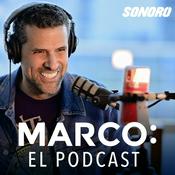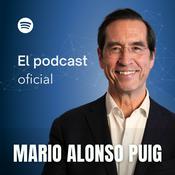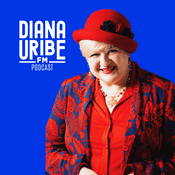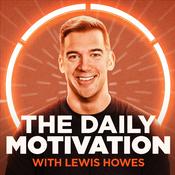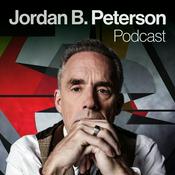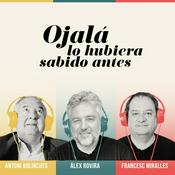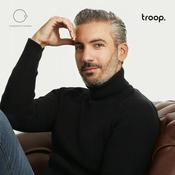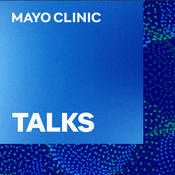132 episodios

Global Practices in Cardiac Imaging for Cardiac Sarcoidosis
06/1/2026 | 17 min
Global Practices in Cardiac Imaging for Cardiac Sarcoidosis Guest: Tahir Kafil, M.D. Host: Sharonne Hayes, M.D. Cardiac imaging is a cornerstone in the diagnostic work-up and management of cardiac sarcoidosis. However, indications and use of advanced cardiac imaging vary from institution to institution, and even between providers at the same institution. We conducted an international Delphi consensus study of 89 global experts in cardiac sarcoidosis to evaluate real-world clinical practices and use of advanced cardiac imaging. We developed consensus for use of advanced cardiac imaging in cardiac sarcoidosis. Areas lacking consensus were noted as priority areas for research. Topics Discussed: From a big picture perspective, how is cardiac sarcoidosis generally diagnosed? What exactly is the Delphi methodology your team used to build consensus? The suggested algorithm for imaging in suspected cardiac sarcoidosis uses pretest probability, how was that defined? Was cardiac MRI superior to PET in your study? Does one have to be first? How do experts decide how often to do follow up PET imaging in established cardiac sarcoidosis? What were areas of priority research that were identified? The research study cited by Dr. Kafil was published on June 2, 2025. Click the following link to view the paper: https://www.jacc.org/doi/full/10.1016/j.jcmg.2025.02.010 Connect with Mayo Clinic's Cardiovascular Continuing Medical Education online at https://cveducation.mayo.edu or on Twitter @MayoClinicCV and @MayoCVservices. LinkedIn: Mayo Clinic Cardiovascular Services Cardiovascular Education App: The Mayo Clinic Cardiovascular CME App is an innovative educational platform that features cardiology-focused continuing medical education wherever and whenever you need it. Use this app to access other free content and browse upcoming courses. Download it for free in Apple or Google stores today! No CME credit offered for this episode. Podcast episode transcript found here.

Anticoagulation Monotherapy in Patients with Chronic Coronary Artery Disease and Atrial Fibrillation
30/12/2025 | 10 min
Anticoagulation Monotherapy in Patients with Chronic Coronary Artery Disease and Atrial Fibrillation Guest: Keri Zieminski, APRN, C.N.P., D.N.P. Host: Sharonne Hayes, M.D. This episode of Mayo Clinic’s “Interviews With the Experts” will give an overview of anticoagulation monotherapy in patients with chronic CAD and atrial fibrillation. Discussion will include a brief overview of recently published trials that highlight the use of anticoagulation monotherapy in chronic CAD with atrial fibrillation, and how to manage a patient on anticoagulation monotherapy that needs to undergo noncardiac surgery. Topics Discussed: Why has there been a shift towards redefining antithrombotic medical therapy in patients with chronic CAD with atrial fibrillation? What's changed? Recently published trials that highlight the use of anticoagulation monotherapy in the chronic CAD + AF population. What is your process for managing a patient on anticoagulation monotherapy that needs to go for noncardiac surgery? Connect with Mayo Clinic's Cardiovascular Continuing Medical Education online at https://cveducation.mayo.edu or on Twitter @MayoClinicCV and @MayoCVservices. LinkedIn: Mayo Clinic Cardiovascular Services Cardiovascular Education App: The Mayo Clinic Cardiovascular CME App is an innovative educational platform that features cardiology-focused continuing medical education wherever and whenever you need it. Use this app to access other free content and browse upcoming courses. Download it for free in Apple or Google stores today! No CME credit offered for this episode. Podcast episode transcript found here.

Updated Guidelines for Perioperative Cardiovascular Management for Noncardiac Surgery
23/12/2025 | 30 min
Updated Guidelines for Perioperative Cardiovascular Management for Noncardiac Surgery Guest: Michael Cullen, M.D. Host: Kyle Klarich, M.D. This episode of Mayo Clinic’s “Interviews With the Experts” reviews the assessment of patients with known or suspected cardiovascular disease undergoing noncardiac surgery. Dr. Michael Cullen discusses recommendations from 2024 ACC/AHA perioperative guidelines regarding medication management before and after noncardiac surgery, including recommendations for antiplatelet therapy and bridging anticoagulation. Finally, he highlights new recommendations in the recent 2024 ACC/AHA perioperative guidelines and compare these guidelines to the 2022 European Society of Cardiology perioperative guidelines. Topics Discussed: How should clinicians approach the assessment of a patient prior to noncardiac surgery? How should physicians and APPs manage cardiac medications around the time of noncardiac surgery? What are some of the new recommendations in the 2024 ACC/AHA guidelines for perioperative management prior to noncardiac surgery? How do the 2024 ACC/AHA perioperative guidelines differ from the 2022 ESC noncardiac surgery guidelines? Connect with Mayo Clinic's Cardiovascular Continuing Medical Education online at https://cveducation.mayo.edu or on Twitter @MayoClinicCV and @MayoCVservices. LinkedIn: Mayo Clinic Cardiovascular Services Cardiovascular Education App: The Mayo Clinic Cardiovascular CME App is an innovative educational platform that features cardiology-focused continuing medical education wherever and whenever you need it. Use this app to access other free content and browse upcoming courses. Download it for free in Apple or Google stores today! No CME credit offered for this episode. Podcast episode transcript found here.

Obesity, Hypertension, and Risk Factors in Terms of Prevention and Decreasing the Risk of HfpEF
16/12/2025 | 15 min
Obesity, Hypertension, and Risk Factors in Terms of Prevention and Decreasing the Risk of HfpEF Guest: Affan Irfan, M.D., Ph.D. Host: Stephen L. Kopecky, M.D. HFpEF is a type of heart failure where the heart pumps normally but becomes stiff. This leads to fatigue, shortness of breath, and fluid retention. It is closely linked to obesity, hypertension, and metabolic disorders, with cases rising as these conditions become more common. Topics Discussed: What is HFpEF and its risk factors? How common are obesity and hypertension, and how often do they lead to HFpEF? How do you diagnose HFpEF? How effective are weight loss, diet, and exercise in preventing HFpEF? What medical and public health strategies help reduce these risk factors and HFpEF cases? Connect with Mayo Clinic's Cardiovascular Continuing Medical Education online at https://cveducation.mayo.edu or on Twitter @MayoClinicCV and @MayoCVservices. LinkedIn: Mayo Clinic Cardiovascular Services Cardiovascular Education App: The Mayo Clinic Cardiovascular CME App is an innovative educational platform that features cardiology-focused continuing medical education wherever and whenever you need it. Use this app to access other free content and browse upcoming courses. Download it for free in Apple or Google stores today! No CME credit offered for this episode. Podcast episode transcript found here.

Aortic Regurgitation: Beyond the Valve
09/12/2025 | 21 min
Aortic Regurgitation: Beyond the Valve Guest: Vidhu Anand, M.B.B.S. Host: Kyle Klarich, M.D. In this episode of Mayo Clinic’s “Interviews With the Experts,” Dr. Klarich and Dr. Anand discuss evolving approaches to assessing left ventricular remodeling in chronic aortic regurgitation. Dr. Vidhu Anand discusses research showing that LV volumes, global longitudinal strain, and myocardial fibrosis can detect dysfunction earlier than traditional guideline thresholds. Listeners can expect to better understand the role of multimodality imaging, extra valvular involvement, and practical steps echocardiographers can take to optimize AR assessment. Topics Discussed: What imaging markers help detect early myocardial dysfunction in AR, and how do they assist in risk stratification? Guidelines traditionally focus on LV dimensions and ejection fraction for surgical decision-making in AR. Is there any data that guidelines may not be capturing patients at the optimal time? Is there a role of multimodality imaging in AR? What practical steps can a sonographer or echocardiographer today to bring their AR assessment closer to what your research suggests is optimal? Please reference Dr. Anand's research article(s) here: https://pubmed.ncbi.nlm.nih.gov/39545891/ https://pubmed.ncbi.nlm.nih.gov/33253815/ https://pubmed.ncbi.nlm.nih.gov/39218370/ Connect with Mayo Clinic's Cardiovascular Continuing Medical Education online at https://cveducation.mayo.edu or on Twitter @MayoClinicCV and @MayoCVservices. LinkedIn: Mayo Clinic Cardiovascular Services Cardiovascular Education App: The Mayo Clinic Cardiovascular CME App is an innovative educational platform that features cardiology-focused continuing medical education wherever and whenever you need it. Use this app to access other free content and browse upcoming courses. Download it for free in Apple or Google stores today! No CME credit offered for this episode. Podcast episode transcript found here.
Más podcasts de Educación
Podcasts a la moda de Educación
Acerca de Mayo Clinic Cardiovascular CME
Escucha Mayo Clinic Cardiovascular CME, Tu Desarrollo Personal y muchos más podcasts de todo el mundo con la aplicación de radio.net
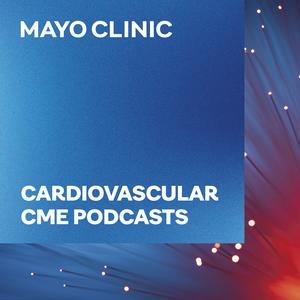
Descarga la app gratuita: radio.net
- Añadir radios y podcasts a favoritos
- Transmisión por Wi-Fi y Bluetooth
- Carplay & Android Auto compatible
- Muchas otras funciones de la app
Descarga la app gratuita: radio.net
- Añadir radios y podcasts a favoritos
- Transmisión por Wi-Fi y Bluetooth
- Carplay & Android Auto compatible
- Muchas otras funciones de la app


Mayo Clinic Cardiovascular CME
Descarga la app,
Escucha.

